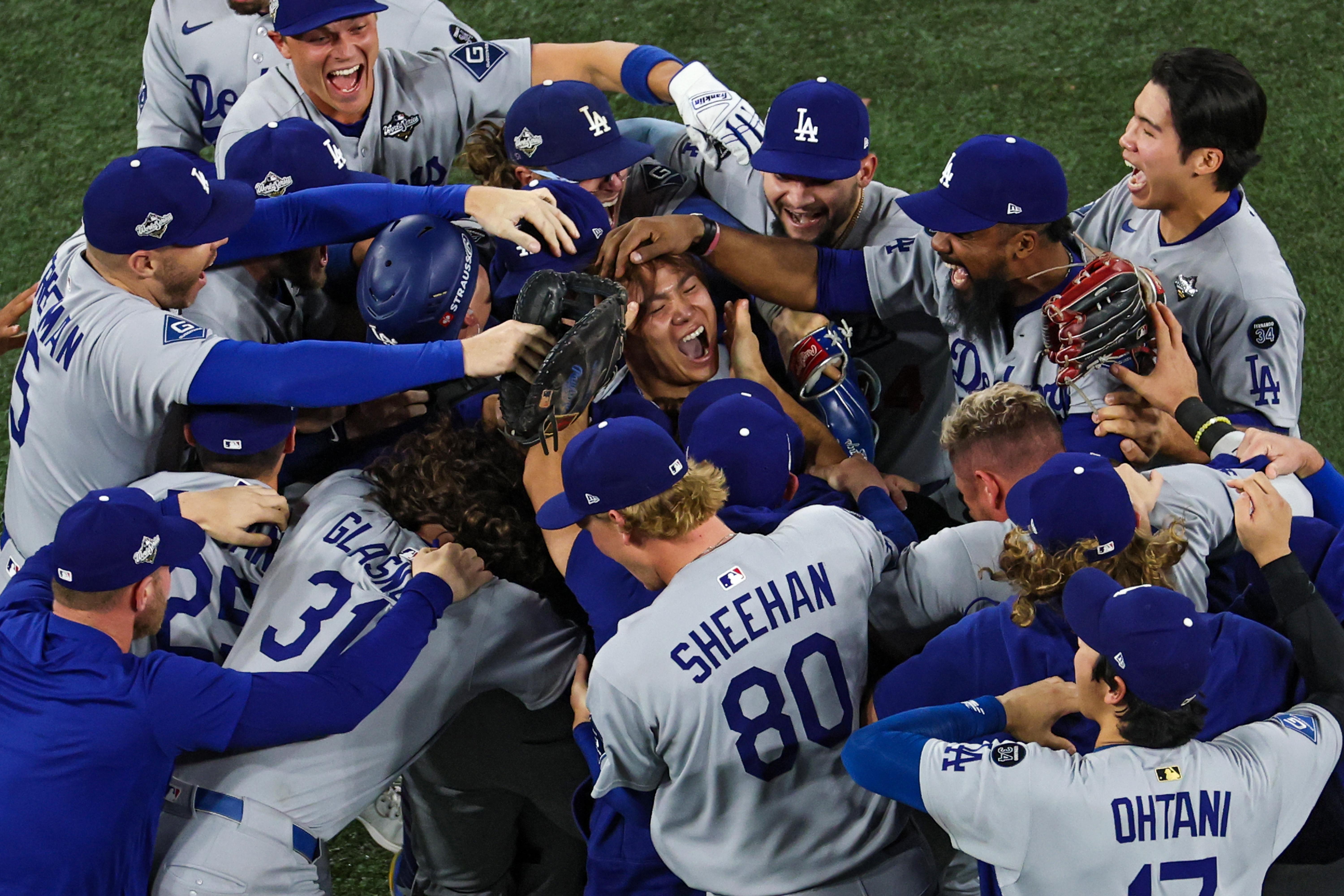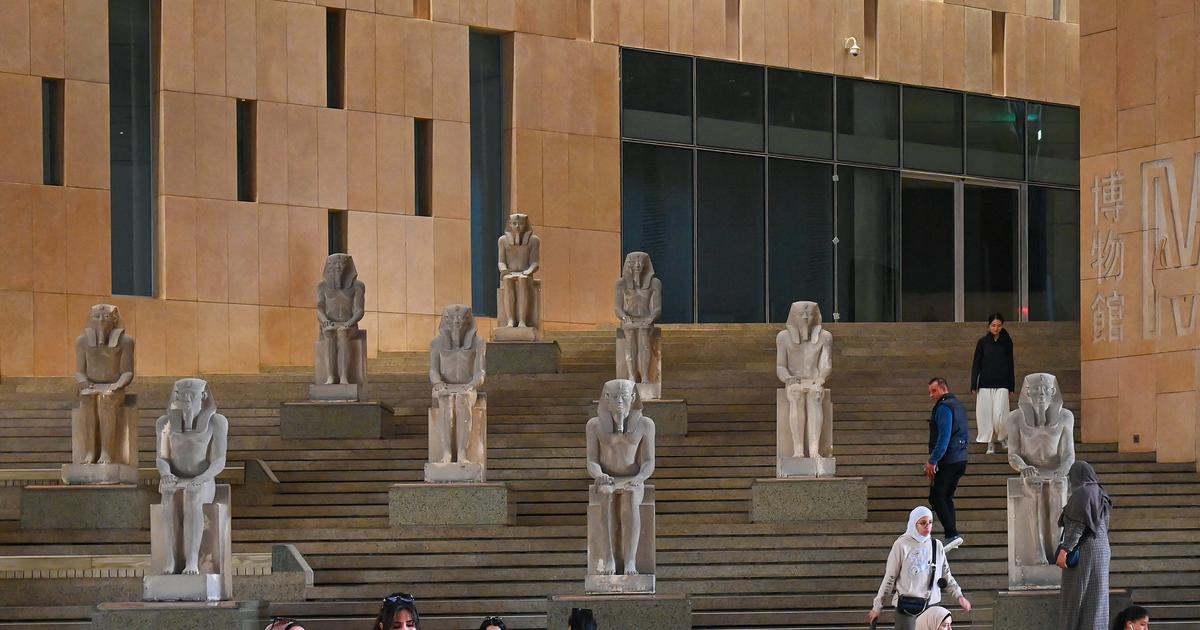The World Series Outcome Was Astonishing—and, Frankly, Obscene

 (min-width: 1024px)709px,
(min-width: 768px)620px,
calc(100vw - 30px)" width="6000">
(min-width: 1024px)709px,
(min-width: 768px)620px,
calc(100vw - 30px)" width="6000">The Los Angeles Dodgers have a dynasty. Their 5–4 win over the Toronto Blue Jays on Saturday night, in one of the best winner-take-all games in World Series history, makes them the first repeat champions in a quarter-century.
It's an astonishing outcome for a team that has been the center of years of discourse about whether they have “ruined” baseball by acquiring so many of the game's best players and putting them on the game's biggest payroll. They haven't, for the record. But the Dodgers are eminently hateable villains now, even though Shohei Ohtani's smile and skill make him impossible to dislike. It's not because they paid Ohtani, or pitcher Yoshinobu Yamamoto, or future Hall of Fame hitters Freddie Freeman and Mookie Betts, or anyone else. The Dodgers are also a player development powerhouse in their own right, growing their own minor leaguers from little baseball seedlings into catchers like Will Smith, a 2016 first-round draft pick who's made three all-star teams and hit the winning home run in the 11th inning of Game 7.
The Dodgers are villains because it absolutely sucks to watch a baseball team have this many dumb, bullshit things go right for itself at the exact right moment. There is “making your own luck,” and there is living the charmed life that the Dodgers lived in this World Series. As a fan of a baseball team that is neither competently run nor trying on an ownership level to win championships, I don't resent the Dodgers for being an attractive destination for the best players. (I moved to LA, too, after all.) I resent them because of the ridiculous strokes of good fortune that they enjoyed this fall. This absurd luck cuts against baseball's true purpose: to build character by subjecting its fans to endless misery.
Over 162 games, variance mostly washes out of a baseball team. Based on how hard their hitters hit the ball this year, the Dodgers' “should have” had the sixth-best betting average in baseball this year, per Statcast. In reality, they had… the sixth-best batting average in baseball, exactly as good as they should have been. But the playoffs are an exercise in randomness, as we're so often told. When the postseason doesn't go the way of the best teams in the league, people get upset about it . Fair is fair, then: When the playoffs do break perfectly for the goliaths, we're allowed to point out how much ridiculous help the baseball gods gave them. And for the best-constructed ball club in the world, the gods bestowed so many gifts the past few weeks.
They started—though did not end—with the Philadelphia Phillies pitcher who punched the Dodgers' ticket to the National League Championship series by throwing away a routine groundout to the Dodger Stadium backstop . In the last two games of the World Series, the Dodgers' fortune escalated. I would argue that no team has ever lived as charmed a baseball life as LA did during Games 6 and 7 in Toronto. The Dodgers were thieves to win this series. It's a compliment, but also a completely valid reason to be sick of them and to wait with anticipation for the day that some ballclub, any ballclub, delivers some comeuppance.
The Dodgers trailed the series three games to two entering Friday's Game 6. Fast-forward to the bottom of the ninth inning, when the Blue Jays, down 3–1, put men on second and third base with nobody out. The Dodgers brought on Tyler Glasnow, a starting pitcher, on three days' rest. Glasnow got a quick popout and then gave up a flare to left field off the bat of Toronto's Andrés Giménez. Based on Giménez hitting the ball at a speed of 81 miles per hour and at a lightly lofted angle, you'd expect a game-tying base to hit 71 percent of the time .
Playing left for the Dodgers was Enrique “Kiké” Hernández, a journeyman utility guy who, at 33, played at replacement level this season. Hernández is, at this point, what you would call “a vibes guy,” whom the Dodgers ostensibly have kept around because they don't feel like spending that much money on their bench and the other players like him. Hernández couldn't see the ball in the lights, he said, but had an inkling that it wasn't going far because he heard Giménez's bat break. He charged in, made a fine catch, and saw that the Jays' Addison Barger had cheated pretty far off second base, hoping to score on a base hit. Hernández didn't set himself and threw a kind of weak ball to second. It bounced short of Miguel Rojas, another journeyman utility guy who's made himself valuable to the Dodgers the past three seasons. The 36-year-old awkwardly scooped it while falling down, doubling off Barger and ending the game.
The next night, the Dodgers trailed 4–3 in the bottom of the ninth. Ohtani, the second-best hitter in the world, was due up third in the inning. He had terrorized the Blue Jays earlier in the series , but wasn't hitting much over the past few days. The Blue Jays brought on their best reliever, closer Jeff Hoffman. He struck out Hernández immediately, leaving a clear task: get out the No. 9 hitter, Rojas, so that Ohtani would not come to the plate with the tying run aboard. This should have been easy. Rojas, in and out of the lineup, had not gotten a hit in exactly one month, since Game 2 of the Dodgers' wild-card series. His one career playoff home run came five years earlier when he played for the Marlins. His seven dingers during the regular season were the fewest of any Dodgers regular. So, you know what happened.
Ohtani flew out in the next at-bat. Naturally, the Jays had been burned not by the $700 million time-traveling Babe Ruth, but by a 36-year-old making $5 million this season while appearing at five spots on the diamond, including as a position player pitcher. A Rojas home run in that spot was an utter impossibility, but it happened, and it saved the Dodgers' season.
In the bottom of the inning, with the game now tied, the Blue Jays loaded the bases with one out and looked poised to end the game anyway. The Dodgers had brought on Yamamoto, their best postseason pitcher, on all of zero days' rest. (He'd recorded the win by throwing six innings on Friday.) Yamamoto induced a grounder to Rojas at second, but Rojas lost his balance and fired off an awkward throw to the plate. Toronto's Isiah Kiner-Falefa only needed to beat it out to win the Jays the Trophy. But Kiner-Falefa took a tiny lead off third base, worried about the highly unlikely event of getting doubled up on a lineout to third. (Daulton Varsho, a lefty, had not lined out to the left side of the infield all season.) Kiner-Falefa wound up being out by approximately three inches, after deciding not to run through the plate but to slow himself down by sliding on a force play. If he'd done any of that differently, the Dodgers would have been toast.
The next hitter, Ernie Clement, hit a booming fly ball to the left center field gap. Had Clement hit that fly ball in Varsho's spot, the game would've ended on a sacrifice fly or a hit. But with two outs, newly subbed-in defensive replacement Andy Pages ran after the ball on the warning track. Hernández, desperate to catch the ball himself, didn't see his teammate. The two ran into each other, and somehow Pages caught the ball instead of a concussion. The game continues. This would have all constituted an unimaginable escape if it were happening on some random weekend in May. In Game 7 of the World Series, it was probably the most dramatic defensive sequence in baseball history.
It only got more obscene. The Dodgers' winning home run in the top of the 11th came off the bat of Smith, the catcher who was batting second. In other words, Los Angeles' tying and winning homers came from the two guys sandwiching Ohtani in the lineup, rather than the big man himself. The Blue Jays tried to rally in the bottom half, when Vladimir Guerrero Jr. finished an incredible postseason for himself by hitting a leadoff double. But then the Dodgers got the best kind of fortune: a bad decision by the opposing manager. Jays boss John Schneider called for a sacrifice bunt, which moved Guerrero to third but lowered his team's win probability by a few points. The next hitter walked, setting up a game-ending double-play possibility. The man at the plate for that at-bat was Alejandro Kirk, a 5-foot-8, 245-pound catcher who graded out as the 11th-slowest runner out of 579 tracked players in MLB this season. Kirk had grounded into 16 double plays in the regular season, and here he faced heavy groundball pitcher Yamamoto. The inevitable happened, as Kirk bounced to Betts at short for a routine, season-ending twin killing.
It helps to have the checkbook. Yamamoto is a titan, and he's playing on the biggest pitching contract any player has ever received. Ohtani's deal with the Dodgers is worth $700 million. The Dodgers' luxury tax payroll this year was $50 million more than anyone else's . Being rich offers many successes and also lets the Dodgers bury their failures. (Sign an $18 million-a-year relief pitcher who forgets how to pitch? At least he didn't prevent you from filling holes elsewhere.)
The money unavoidably makes the Dodgers inevitable contenders, but the theoretical allure of the postseason is that shit gets weird . MLB's league office pitches that variability as a ladder that lesser teams can climb up, offering the possibility of greatness and giving more fans a reason to pay attention. But what's easy to forget is that the best team in the world can get insanely lucky, too. The reason I have no hope for my own team is that the man who owns the franchise will never try hard enough to reach the World Series. But after what happened to the Blue Jays, I see a silver lining: There are worse things than hopelessness.
Slate





